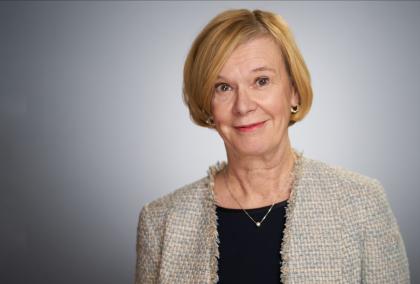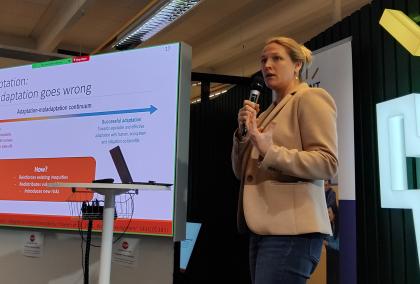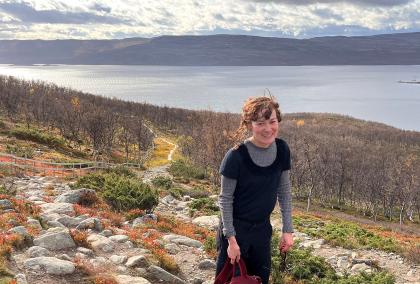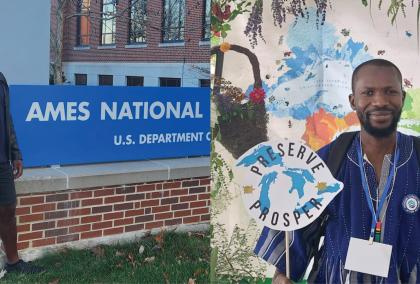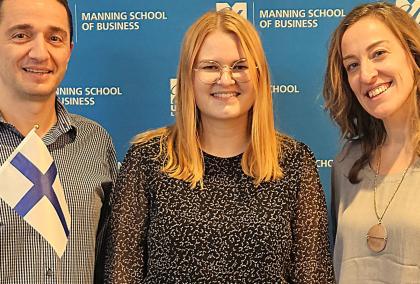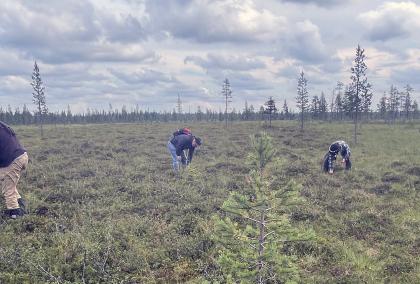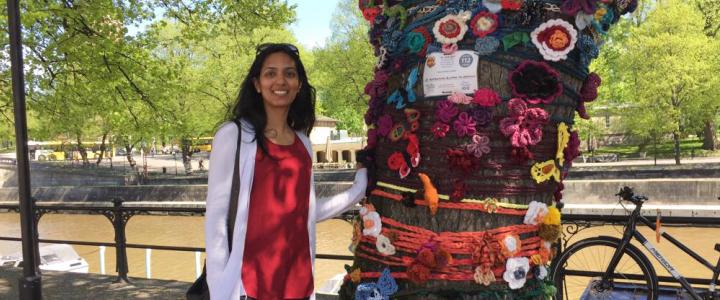

In 2016 Avanti Chajed came to Finland with a Fulbright-University of Turku Graduate Award, studying education at the University of Turku. She loved it so much, she moved back in 2020, and is now living in Turku with her Finnish husband, and working on her doctorate with the Teachers College, Columbia University. But what inspired her to come to Finland in the first place?
“When I was teaching in the U.S., I was working with kids in a low income school, seeing inequalities and wondering about other ways of doing things. Finland has this utopic kind of image in the U.S., so I thought a Masters would be a good way to go abroad and get a different perspective.”
Having heard about the Fulbright program from a friend, Avanti decided to try for herself. She was awarded a Fulbright to pursue graduate studies at the University of Turku, opting for a Masters degree in Learning, Learning Environments and Educational Systems.
“I loved it when I first got here. I felt very optimistic - it was like a new beginning for me. I really liked the city itself. I found it comfortable. It helped that it was a really sunny summer day, and a lot of people were out and about. Right away I felt it was a good start.”
For Avanti, perhaps the most important aspect of her masters at Turku was the community spirit. “It was an international program, and I had never been with people from all these different parts of the world. I’d always had very diverse classmates, but they had all grown up in the U.S. This was different, because the group was very international. We became a tight knit group, and that helped a lot as it gave me a sense of community, a sense of place. That was a huge part of the experience for me.”
A Growing Experience
“The program really allowed for independence. It took me a while to get used to that, but then I appreciated it. Our courses were pretty well mapped out for us, but within the classes, it felt almost unstructured. There was a great deal of flexibility. It was really research-focused, so we were able to do the research that interested us, and the professors supported us in that. It was a different way to look at my own personal learning.”
“The Fulbright was a growing experience. I felt like I came into my own during my Fulbright year.”
Having worked as a teacher in low income schools both in the U.S. and India, Avanti feels passionately about equality for students from diverse backgrounds.
I want to work to bridge that gap between immigrant family experiences and the way those experiences are talked about and thought about.
“My motivation has always been the fact that schools don't meet the needs of all students equally. Initially when I came to Finland on Fulbright, my focus was on how the needs of students from poor backgrounds are not being met. But now my life and geographic center has shifted to Finland, that population has changed to immigrant children, because I think the needs of immigrant children are not understood very well, by teachers, and by society in general. I want to work to bridge that gap between immigrant family experiences and the way those experiences are talked about and thought about.”
“I initially had a policy focus, and planned to work on teaching and teacher education, but now I'm working with families. My focus is on multicultural education and immigrant children, but instead of looking at it from the school side, I’m looking at immigrant family experiences and practices, especially how they consider life back in their home country in helping to raise their children and make decisions for the family. So, I touch on a lot of issues to do with identity and belonging, but centered in the family home rather than in school.”
As the first stage in her doctorate, Avanti will be defending her research proposal this spring. In the meantime, she is volunteering at the Turku-based intercultural association Yhdessä-yhdistys (The Together Association), a non-profit which helps immigrant families with integration. “That’s been an interesting part of it, trying to understand what integration means here in Finland.”
Avanti’s experience in India was her first taste of international exchange. “It allowed for a lot of growth. I’d been to India a lot, but I’d always been there with family. I felt comfortable there, but I didn’t realize how much of that was because of my family, and because I wasn’t working there.”
Avanti worked in Lucknow, a large city in the northern state of Uttar Pradesh, with no family nearby. Teaching in such a different environment and educational culture was challenging, she recalls, but a key part of the experience was living independently and adapting to a different way of life. “I learned to be a lot more flexible, to go with the flow. Also, little things like going by myself to the market, those were things I’d never done in India before.”
Turku - a Place to Love
Adapting to life in Finland has been simpler, although Avanti says she is still learning. Originally from Champaign-Urbana, Illinois, Avanti reflects that she has moved from one university town to another. “I think that might be part of why I like Turku. The size is similar, it has the university, but it has its own life too.”
Recently Avanti’s portrait of Turku was published in the New York Times feature, “52 Places to Love in 2021”, where she writes about her first impressions of the city, reflecting on the connection between nature and people. “I wanted to write about how I fell in love with Turku the day I got here. I was looking outside the window, where there is a little forest, I was thinking about how the trees seemed to be touching the sky here. I love that image, and I wanted to expand on that.”
Avanti continues to reflect on her own path, including how her personal and professional life relate to one another. “Really what I want to do is bring connection between people. That’s the way I’m trying to think about my work, so it’s grounded in something meaningful.”
